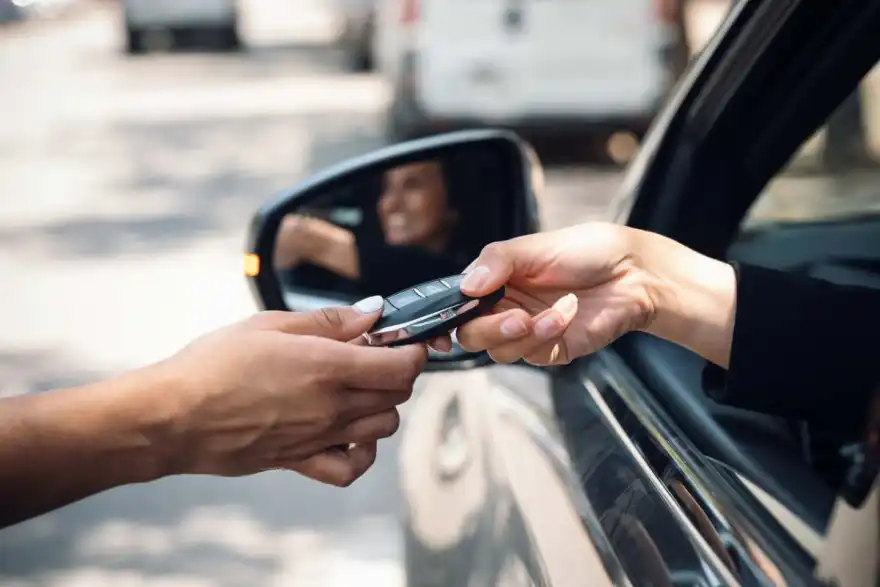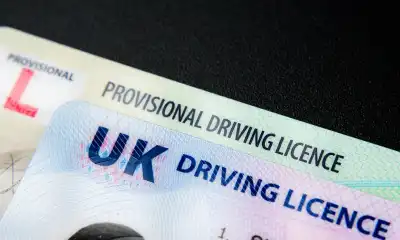
If you're a young driver, whether you've just passed your test or are considering leasing a car for the first time, car leasing is becoming a popular alternative to buying. Research by Experian shows that 1 in 5 drivers aged 18 to 24 are choosing to lease, more than double the rate of older age groups.
With appealing low monthly payments, minimal upfront costs, and flexible contract terms, leasing can be an affordable way to drive a brand-new car. But is it the right choice for you as a young driver?
To help you make an informed decision, we have put together a guide covering essential information on car leasing for young drivers, including age restrictions, credit checks, and contract options.
Is Car Leasing Right for Me?
Leasing a car involves a long-term rental agreement, typically for 2 to 4 years. You’ll pay an initial rental (usually three months' worth of payments) followed by fixed monthly fees. At the end of the lease, you return the car or start a new lease.
Whether leasing is right for you depends on several factors, including your budget, driving habits, and whether you want to own the car. Before deciding, consider the following:
- What’s my budget? Setting a realistic budget for both the upfront costs and ongoing monthly payments is crucial. Don’t forget to include running costs like fuel, insurance, and servicing.
- Is my credit rating good enough? Leasing requires a credit check, similar to other financing options like bank loans or dealer finance.
- How far will I drive? If you plan to drive long distances, leasing may not be as cost-effective as buying, since most leases come with mileage limits.
- Do I want a new or used car? Leasing usually only applies to new cars. If you’re in the market for a used vehicle, buying might be a better option.
- Do I need to own the car? Leasing means you never own the car. If ? ownership is important, consider other financing methods.
Benefits of Leasing for New Drivers
Leasing offers several advantages, especially for young drivers:
- New Car Experience: You’ll be driving a brand-new car with a full manufacturer’s warranty, ensuring peace of mind if issues arise.
- Fixed Monthly Payments: Leasing allows for easier budgeting since the costs are set for the contract’s duration.
- Included Benefits: Road tax, breakdown recovery, and a manufacturer’s warranty are typically included in the contract.
- No Resale Hassle: You don’t need to worry about the car’s depreciation or selling it after the contract ends.
- Affordable Payments: Monthly rentals are often lower than other financing options, allowing access to higher-end cars at a lower cost.
- Optional Maintenance Packages: You can add a maintenance package to cover servicing and repairs, spreading the cost over time.
- Flexible Contracts: Leasing contracts can be tailored to your needs, with various durations and mileage limits available.
Potential Drawbacks of Leasing
While leasing has its benefits, there are some drawbacks to consider:
- Credit Requirements: You’ll need a good credit score to qualify for leasing.
- No Ownership: You won’t own the car at the end of the lease, so if ownership is a priority, leasing may not suit you.
- Early Termination Fees: Exiting a lease early can be costly, often involving fees equal to 50% of the remaining payments.
- Mileage Limits: Exceeding the mileage limit will incur extra charges.
- Wear and Tear Charges: The vehicle must be returned in good condition; otherwise, you could face additional fees.
- Insurance Costs: Insurance isn’t included, and you must arrange your own comprehensive policy.
- No Customisations: Leased vehicles cannot be permanently modified.
What if I Don’t Have a Credit History?
Leasing requires a credit check, and young drivers often struggle with limited or no credit history. Lenders prefer established borrowers who have a proven track record of repaying debts.
While a good credit score is important, lenders look at your overall financial picture. If you’re new to credit, you can improve your chances by building a positive credit history. The Money Advice Service suggests the following steps:
- Open and manage a bank account responsibly.
- Set up direct debits for bills, like mobile phone payments.
- Avoid missed payments as these can harm your credit score.
- Register on the electoral roll to help lenders verify your address.
By taking these steps, you can boost your creditworthiness and improve your chances of being accepted for a lease.




